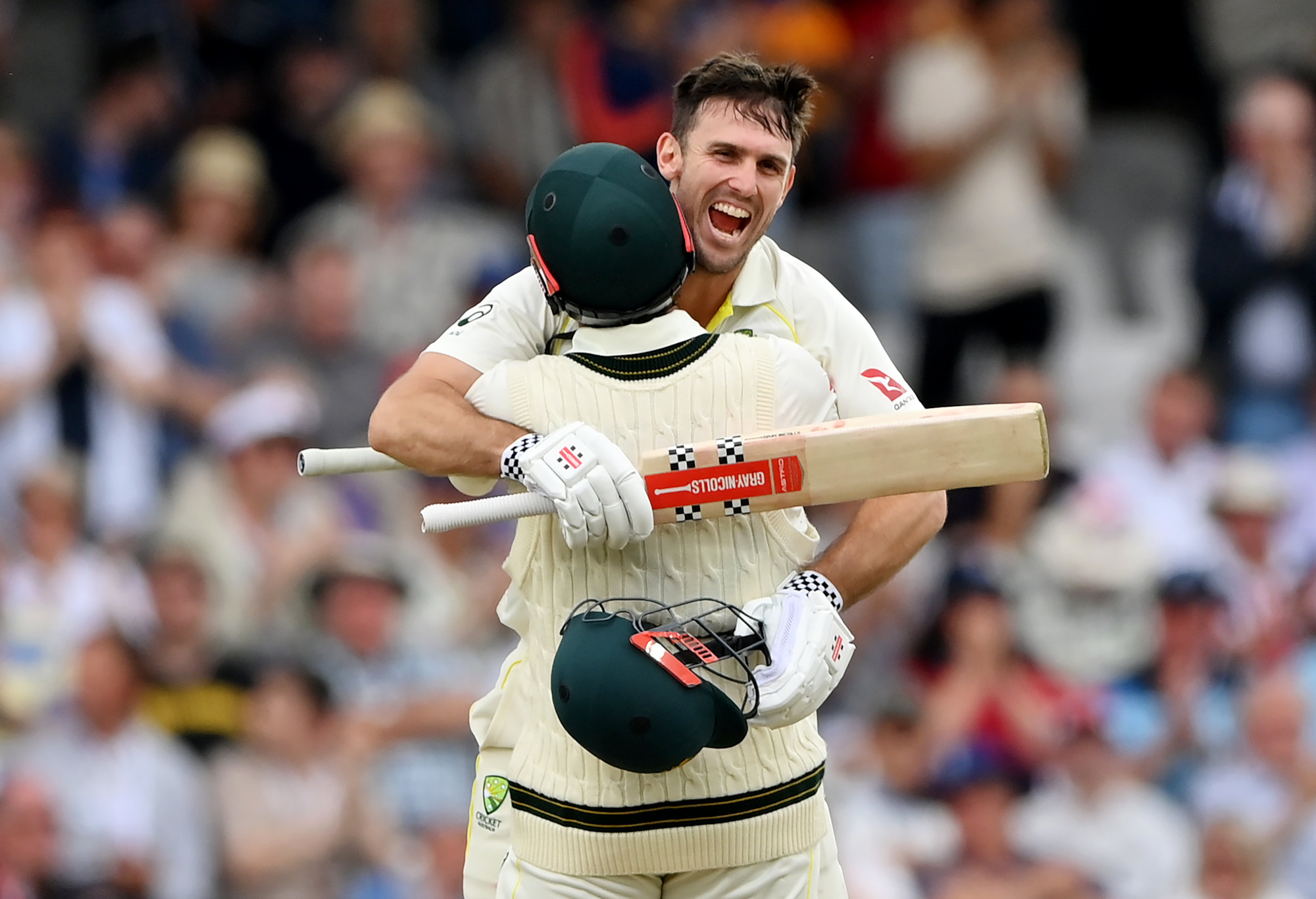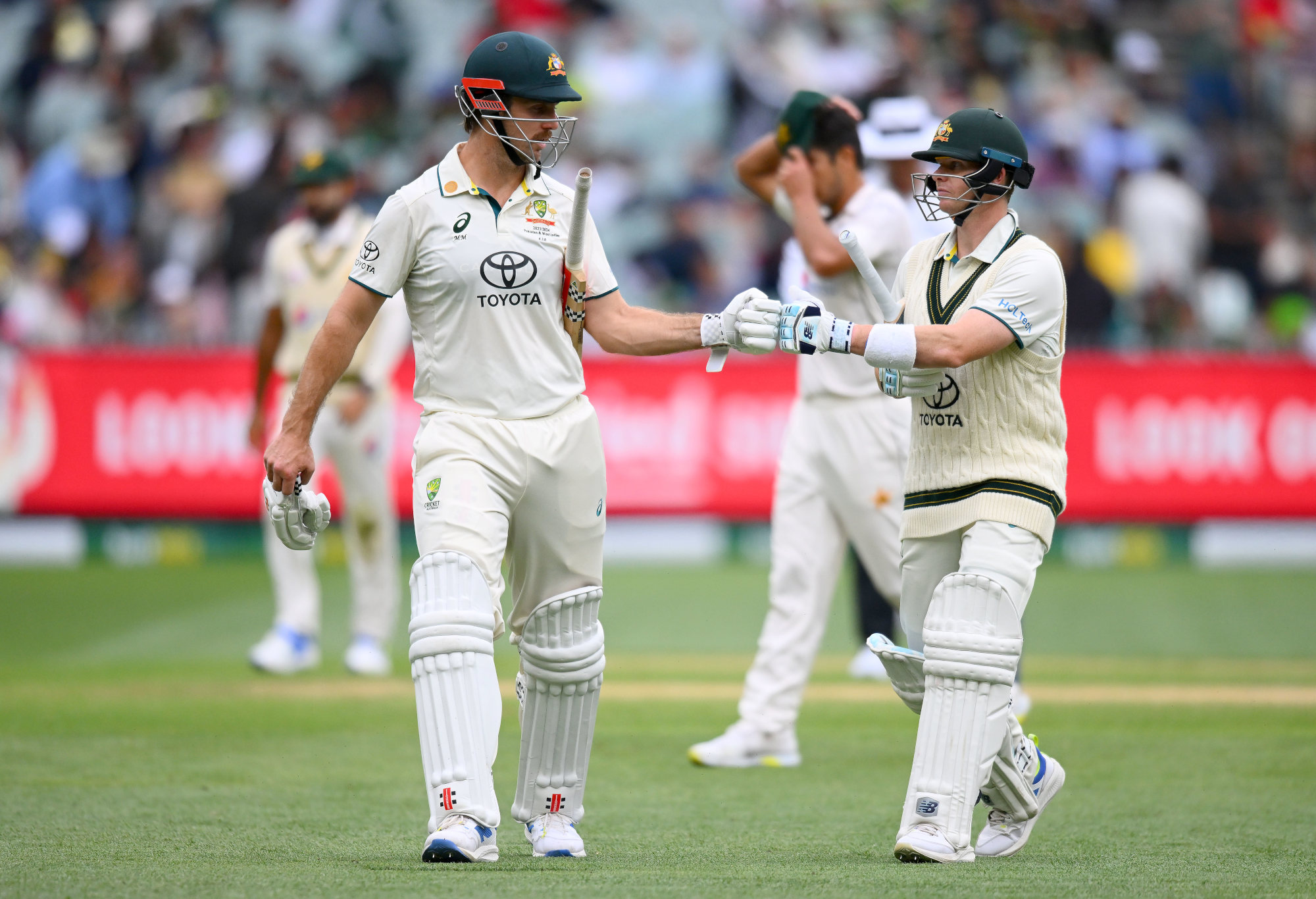It’s a dangerous game to offer even the lightest criticism towards Mitchell Marsh at the moment – especially after his latest rescue act to pull Australia out of a serious jam in the second innings at the MCG.
The affable Western Australian’s popularity has come full circle since he was infamously booed during the Boxing Day Test of 2018 – and his equally well-known remark that ‘most of Australia hate me’ during a press conference in 2019 – to the point where he is now by some distance the most liked cricketer in Australia.
The reason for the collective public attitude shift? Simple – Marsh is now delivering on the years of red-ball promise and become an outstanding, match-turning batter in the middle order (his heroics in Australia’s T20I and ODI World Cup triumphs in the last two years haven’t hurt either).
It’s hard to dislike a bloke who rescues Australia in the middle of the Ashes with a spectacular century like he did on Day 1 at Edgbaston, and ever since, the runs haven’t stopped flowing for the man they call ‘Bison’.
All the same, I can’t help feeling there has been a serious narrative change regarding the 32-year old in the last six months; one that portrays any criticism of Marsh over the years as being unwarranted, harsh and above all, horribly misguided.
Proving this point perfectly was Kerry O’Keeffe on Fox Cricket midway through Day 3.
“I’ve rarely seen an Australian cricketer so poorly treated by the man in the street as Mitch Marsh has been treated over the years,” O’Keeffe said.
“Just that negativity about him… everybody was convinced that he was the most overrated player in the country. When he was selected, he was resented by the man in the street, and it’s taken them his whole career to convince them I’m the real deal.”

Mitchell Marsh celebrates with Travis Head after reaching his century. (Photo by Stu Forster/Getty Images)
I went to Cricinfo straight after hearing O’Keeffe’s spiel to double-check: since Marsh was recalled for the Headingley Test, he has averaged 67.5 and passed 50 five times in ten innings, rescuing Australia three times (in Leeds, at the MCG and with an unbeaten 31 to secure an Ashes-retaining draw in Manchester).
In the process, he has lifted his career average to a mighty… 31.03. It sat at 25.2 when he walked out to bat on that first morning in Leeds.
Marsh simply wasn’t harshly treated, or spoken about overwhelmingly negatively, or mistakenly labelled ‘the most overrated player in the country’, as O’Keeffe claimed.
My recollection is that the majority of the criticism being directed at Marsh back in the day was in bemusement that a player with such a poor average – before returning with two centuries against a battered England in the 2017/18 Ashes, his career mean of 21.74 made him statistically the worst number six in Test match history – was being given the sort of run in the team that a player like Glenn Maxwell could only dream of.
You know – the sort of criticism any ordinary performer at the highest level has always been subjected to. The kind of criticism Marcus Harris receives these days for his poor Test batting average, and which has many reacting to David Warner’s call for him to return to the XI in coming matches with scorn and derision.
You also couldn’t dismiss the accusations of nepotism against himself and brother Shaun completely out of hand – like the prevailing theory about Carlton’s Jack Silvagni, many felt then it was unlikely that pair would have played so many Tests for such mediocre returns had they not been earmarked for greatness their entire lives as the ‘sons of Swampy’, former Australian opener Geoff Marsh.
Booing Mitchell Marsh, or indeed anyone, for poor performance was below the belt by the MCG crowd five years ago. But feeling frustrated at a man averaging 25.4 with the bat after 31 Tests and barely bowling being given – and blowing – chance after chance at the top level over other, more deserving claimants (Maxwell, anyone?) was not.
It’s great the Marsh’s exceptional character and personality – he is referred to as the glue of the Australian team for a reason, a beloved figure in the dressing room – have now combined with his exceptional ball-striking and incredible form to bring him the acclaim he richly deserves.
But why the need to rewrite history and portray Marsh as an unfairly maligned figure we’re only now coming to appreciate, rather than the equally satisfying story of a guy making good on his second coming and turning his career around?

Mitchell Marsh and Steve Smith. (Photo by Morgan Hancock – CA/Cricket Australia via Getty Images)
If anyone was unfairly treated back in those days, it was someone like Chadd Sayers – brought in for a debut Test in the aftermath of Sandpapergate in Johannesburg, he was publicly lampooned for bowling too slow by Shane Warne on commentary, and despite a Sheffield Shield bowling average on par with any of his peers, Test stars included, never came close to playing for Australia again.
Or Maxwell, of whom Marsh was only one of many Australian cricketers with, objectively, inferior first-class records and talent bases, who will almost certainly never play a Test in his home country despite being every bit as capable of the sort of counterattacking brilliance the Western Australian has so excellently provided in 2023.
When Matthew Hayden, Damien Martyn, Justin Langer and countless others lost their spots in a dominant Australia XI of the mid-1990s, worked their backsides off in domestic cricket and came back as stars years later, there were few suggestions they had been harshly treated to be exiled.
So why has there been a sudden push to martyr Marsh – and not just from his always parochial Western Australian fan base, who would rather secede from the nation than not give a fellow Sandgroper his due?
The sporting world loves to bandy about the word ‘redemption’ in any situation, no matter how tenuous the connection – but this is the perfect example of when it should be used.
But instead of talking about Marsh in these terms, it’s all about him proving his doubters wrong – as if we should all have seen back in 2018 that a man averaging in the mid-20s was capable of this sort of batting brilliance.
Marsh has been nothing short of magnificent since his Test recall – you’d have to be blind to not acknowledge that.
His white-ball brilliance, and improved form in the Sheffield Shield, earned him the chance to be next in line when Cameron Green’s hamstring went mid-Ashes, and he took the chance in both hands and is yet to let it go.
In the process, he is making Green, one of the biggest talents in the country, wait his turn for another go, and rightly so.
But just because everyone loves Marsh now doesn’t mean we need to rewrite history about all the times in the past we all, correctly, felt he wasn’t good enough at the top level.
Because the truth is, he simply wasn’t – until now.






























































































